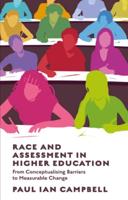Publisher's Synopsis
Welcome to PSYCHO FORENSIC: Forensic Psychology, which is used in various cases of the administration of Justice to assist in the management of judicial cases. Forensic psychology is an area composed of concepts, techniques and skills. This must be done in a methodical and systematic manner, taking into account the application of psychological theories to the service of the administration of justice and providing relevant concepts in relation to the concepts of diagnosis and expert reports. In addition, this book will try to bring you closer to forensic psychology and its components. In addition, it provides enough light for those interested in forensic psychology who want to acquire basic psychological skills and apply them to psychological work. (Cubillos, 2014) Forensic psychology has several resources and steps that help us as investigators and consultants in legal processes. (Cubillos M. L., 2015) Forensic psychology helps us improve participation in the management of judicial processes. To understand forensic psychology in Colombia, we will highlight the following skills. - Ability to use criminal techniques in the investigation of criminal offenses in accordance with applicable regulations, in order to assist the judicial authorities in making decisions (Cubillos M., 2015). - Know the concepts of forensic psychology, assessment methods and expert opinion and be able to identify the basic concepts of forensic medicine and apply them to psychology in Colombia. (Cubillos M., 2015) - Develop clarity, coherence, understanding of concepts, forensic psychology and psychological expertise. - Detect and differentiate the basic concepts of forensic psychology and identify the topic and scope of forensic psychology. - Identify assessment methods and expert opinions of forensic psychology. - Recognize and understand the concepts of forensic psychology in the virtual environment. - Understand how to use forensic psychology in interviews and interrogations. - Learn what the principles are in the art of obtaining information. - Distinguish traumas, syndromes, and research techniques from a forensic psychology perspective - Understand the professional work of a forensic psychologist and their training processes. - Become familiar with the training processes in forensic psychology. - Discover the Functions of the Forensic Psychologist and their Professional Role - Explore the Stages to Become a Forensic Professional - Point Out the Applications of Artificial Intelligence in Forensic Psychology - Learn about the contributions of Artificial Intelligence in Forensic Psychology - Point out how artificial intelligence is being used to identify criminal profiles - Identify how social networks are integrated into crime prevention with artificial intelligence (AI) - Identify Ethical Challenges and Considerations of Forensic Psychology. CHAPTER 1. WHAT CONTEXTS, THEORIES, AND MODELS FROM PSYCHOLOGY ARE APPLIED TO FORENSICS? CHAPTER 2. WHAT IS FORENSIC PSYCHOLOGY? CHAPTER 3. HOW IS APPLIED ANALYSIS OF PROFILES IN FORENSIC PSYCHOLOGY? CHAPTER 4. WHAT IS EVALUATION IN FORENSIC PSYCHOLOGY? CHAPTER 5. HOW TO APPLY FORENSIC PSYCHOLOGY APPLIED TO ONLINE CONTEXTS? CHAPTER 6. HOW TO USE FORENSIC PSYCHOLOGY IN INTERVIEWS AND INTERROGATIONS? CHAPTER 7. WHAT SHOULD YOU KNOW ABOUT TRAUMAS, SYNDROMES, AND INVESTIGATION TECHNIQUES FROM FORENSIC PSYCHOLOGY? CHAPTER 8. WHAT IS THE PROFESSIONAL WORK OF THE FORENSIC PSYCHOLOGIST AND THEIR TRAINING PROCESSES? CHAPTER 9. WHAT DOES ARTIFICIAL INTELLIGENCE BRING TO FORENSIC PSYCHOLOGY? Artificial Intelligence in Forensic Psychology Ethical Challenges and Considerations










